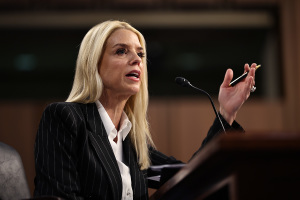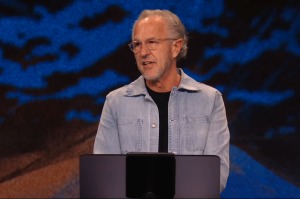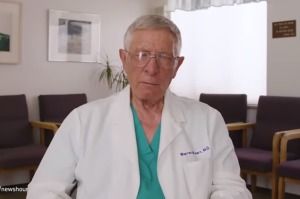Anglicans Renew Listening Process to Help Mend Rifts
An Anglican council that advises member churches worldwide and works to facilitate cooperative work has announced the continuation of a listening process that seeks to open the ears of Anglicans to the experiences of homosexual persons.
Called The Continuing Indaba and Mutual Listening Project, the listening process is a commitment to "a real seeking of a common mind upon the issues which threaten to divide us."
"Indaba" is a Zulu word for the process of decision making by consensus common in many African cultures. It seeks to have all the parties involved come together to dialogue and tackle the root controversies in the Anglican Communion, including the authority of Scripture, faithfulness to tradition and the respect for the dignity of all.
According to the Rev. Canon Phil Groves, who presented the project during the May 2-12 Anglican Consultative Council meeting, the project aims to escape the western top-down "adversarial democratic processes" and ground itself on "biblical models" of mutual listening.
"We are committed to developing trust and ensuring transparency," said Groves, according to the Episcopal News Service. "It was something that I had to work very hard on. People didn't actually trust that they were going to be quoted in the right way."
He noted that trust must be based on the belief that "we're not going to amend or betray the Gospel, either in its open word of welcome to all people or in its call to obedience to all people," as reported by ENS.
Groves recognized that the project is not the answer to their problems but indicated that it is part of their journey toward reconciliation and is worth trying.
"We expect hard questions to be asked of one another," he said. "We do expect some very difficult times."
The Continuing Indaba project is a renewal of a listening process that began in 1998 as issues around homosexuality have wracked the global Anglican Communion.
The Episcopal Church – the U.S. arm of Anglicanism – widened rifts in 2003 when it consecrated the first openly gay bishop.
Dato Stanley Isaacs of the Church of South East Asia told the council that healing and reconciliation cannot come about for The Episcopal Church unless they also listen to those who have been disaffected by the national church's pro-gay actions, according to the Episcopal News Service.
Isaacs suggested that the listening project include a provision for those who have been affected by the affirmative actions on homosexuality.
Dozens of churches have split from The Episcopal Church, citing theological differences, particularly over homosexuality. The breakaway congregations believe The Episcopal Church has abandoned Christian orthodox teaching and Anglican tradition and will not get back in line with the rest of the Communion.
The conservative churches are now in the process of forming what is seen as a rival body in North America.
"These people have been severely affected by the affirmative action of The Episcopal Church on matters of human sexuality and they have gone through certain measure of suffering and in some cases persecution and therefore we feel it is necessary that the Listening Process be extended to include a hearing of their case including hearing from those who have called for primatial oversight from outside North America and also to hear from those who have agreed to provide that," Isaacs said, according to VirtueOnline. "It is only in this way that the hearing is said to be balanced so that there could be a possible healing and restoration of the church in North America."
The Continuing Indaba Project will run five pilot conversations across the Anglican Communion, focusing on mission issues and addressing the "difficult" questions. "The hope will be that the result of the conversations will be a depth of agreement and the clarification of disagreement resulting in positive missional relationships."
The project is being funded with a $1.5 million grant by the Satcher Health Leadership Institute at the Morehouse School of Medicine based in Atlanta, Ga.





























